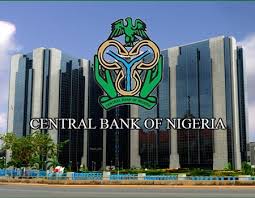The second meeting of the Fish Trade and Enterprise Development Working Group, organized by the African Union-InterAfrican Bureau for Animal Resources (AU-IBAR) and AUDA-NEPAD, took place in Gaborone, Botswana from 20-21 July 2023. This meeting was part of the African Fisheries Reform Mechanism (AFRM). This gathering marked the second assembly of the restructured Working Group on Fish Trade and Enterprise Development within the AFRM. The primary objective of this initiative is to enhance the efficiency and effectiveness of fisheries and aquaculture projects throughout the continent. It seeks to foster regional integration, bolster the capabilities of African Union (AU) Member States and regional entities in providing knowledge-based advisory services, and contribute to the achievement of Agenda 2063.
Key focus areas for the meeting were:
- Reviewing work plans of the AFRM Fish Trade and Enterprise Development Working Group.
- Establishing mechanisms to share knowledge products generated by the project with regional institutions through the AFRM platform.
- Identifying issues for knowledge product production and preparing position papers, advocacy notes, or policy briefs.
The inaugural session was attended by the esteemed Honourable Fidelis Molao, Minister of Agriculture for the Republic of Botswana. Honorable Molao observed that there is a significant and concerning increase in the disparity between the supply and demand of fish. The author observed the necessity of allocating additional resources toward the advancement of aquaculture and the effective management of capture fisheries in response to their declining state. Honorable Molao additionally observed that while the aquaculture sector in Botswana is currently in its early stages of development, the Government of Botswana acknowledges the industry’s potential and has implemented the approved 2021-2026 Aquaculture Strategy. Furthermore, the government is in the process of developing the Aquaculture Policy in collaboration with the Food and Agriculture Organisation (FAO), with the aim of completing it by 2024.
Dr. Nick Nwankpa, the Acting Director of AU-IBAR, highlighted in his opening statement that the governance of Africa’s fisheries and aquaculture sector continues to be a matter of concern, particularly regarding the utilization of knowledge for making well-informed decisions. This concern, he noted can be partially attributed to a lack of capacity and limited access to knowledge products, such as policy briefs, policy notes, information papers, and advocacy papers. He noted that the knowledge products encompass policy messaging, lessons learned, and best practices related to significant sectoral issues. Hence, Dr. Nwankpa emphasized the significance of involving African Union Centres of Excellence as active participants in working groups, as this would greatly contribute to the development and creation of knowledge products.
In addition to the opening session, the two-day event comprises technical sessions on the setting-the-scene presentations, the prioritization of issues and identification of two key items for knowledge products, and synthesizing of issues for the two knowledge products.
The AFRM is an AU-led continental platform to promote coordination and coherence in the governance of the fisheries and aquaculture sector in Africa. Established in 2014 following a call by fisheries ministers at the Conference of African Ministers of Fisheries and Aquaculture (CAMFA) in 2010, the AFRM serves as a continental platform for stakeholders to collaborate, exchange information, advocate for policy change, and monitor the performance of the mechanism.
The AFRM consists of four Working Groups, namely Governance, Aquaculture, Trade, and Small-scale fisheries. These groups are instrumental in promoting sustainable fisheries and aquaculture development in Africa. Their responsibilities encompass providing strategic guidance to ensure policy coherence, driving reforms, enhancing institutional arrangements, improving productivity, and coordinating with stakeholders.
Furthermore, the AFRM contributes to the African Union’s Specialized Technical Committee (STC) on Agriculture, Rural Development, Water, and Environment. As part of the FishGov2 Project, efforts are being made to streamline and activate the AFRM, including facilitating meetings of working groups to gather expert insights on emerging fisheries and aquaculture issues.
The Gaborone meeting brought together representatives from AU member States, Regional Economic Communities (RECs), Regional Fisheries Bodies (RFBs), and other stakeholders to strategize on policies and initiatives aimed at boosting fish trade and enterprise development in Africa.
This significant event yielded substantial outcomes:
o Identified mechanisms to effectively share knowledge products among regional institutions via the AFRM platform.
o Reviewed and aligned work plans with project activities for seamless implementation.
o Identified key issues and for the preparation of knowledge products; including position papers, advocacy notes, and policy briefs.
This second meeting of the Fish Trade and Enterprise Development Working Group presented a vital opportunity for stakeholders to collaborate and explore avenues for promoting fish trade and enterprise development in Africa. By generating concrete actions and strategies, this gathering will contribute to the AU’s vision of a thriving and sustainable fisheries sector across the continent. The African Union (AU) maintains a resolute dedication to advancing the progress of sustainable fisheries and aquaculture development across the African continent. The working groups play a vital role in furthering this objective by facilitating dialogues and devising policies and strategies to bolster the expansion of the fish trade and promote the establishment of enterprises centered around fish.
Closing the meeting, Mr. Gove noted the importance of showing the impact of generated knowledge to solving societal challenges surrounding fish trade. Dr. Mohamed Seisay also thanked stakeholders for owning the process of knowledge generation and contributing to decision making and championing fish trade development in the sector.
Distributed by APO Group on behalf of The African Union – Interafrican Bureau for Animal Resources (AU-IBAR).










